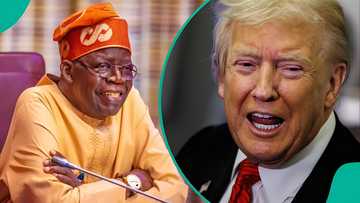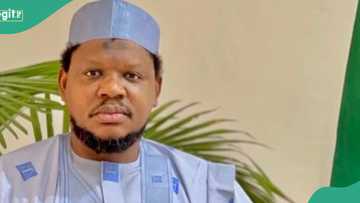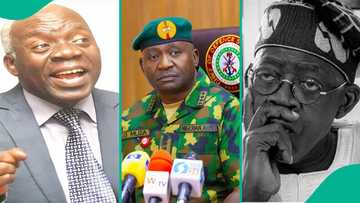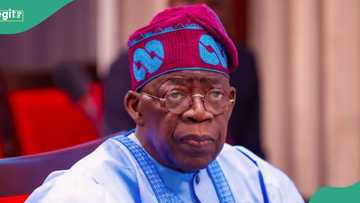US President Trump Announces He Won’t Attend G20 Because of South Africa
- South Africa has dismissed criticism from US President Donald Trump, who questioned its place in the G20 and confirmed he would not attend the upcoming summit
- The country remains confident in its role as host, despite rising tensions over refugee policy and trade tariffs
- Experts say removing a member from the G20 would require broad consensus, which remains unlikely
South Africa has brushed aside recent remarks by US President Donald Trump, who questioned the country’s place in the G20 and confirmed he would not attend the upcoming summit in Johannesburg.
Presidential spokesperson Vincent Magwenya told the BBC that South Africa remained confident it would host a “very successful” G20 summit later this month, as leaders from the world’s largest economies prepare to gather in Johannesburg.
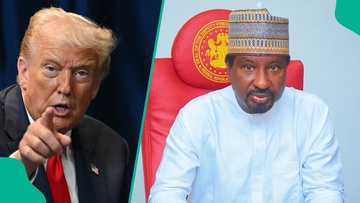
Read also
Trending video shows Nigerian deputy president confronting Trump over Invasion threats in Nigeria
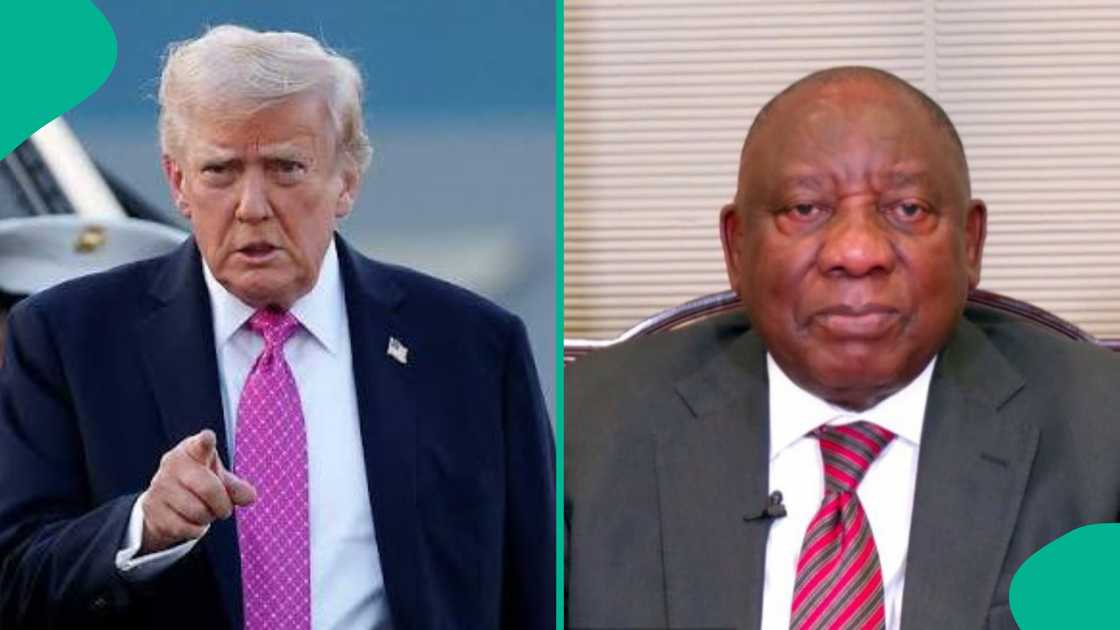
Source: Twitter
Trump, who has repeatedly accused South Africa of discriminating against its white minority, said at a conference in Miami:
“South Africa shouldn’t even be in the Gs any more, because what’s happened there is bad. I’m not going to represent our country there. It shouldn’t be there.”
Instead of attending, Trump will send Vice-President JD Vance to represent the United States.
US-South Africa relations, tensions over refugee policy
South Africa’s government declined to issue a full response to Trump’s comments. However, it had previously criticised the US decision to prioritise refugee applications from white South African Afrikaners, descendants of Dutch and French settlers.
The government stated that claims of a “white genocide” lacked credible evidence and had been widely discredited.
Recent crime statistics in South Africa do not show that white citizens are more frequently targeted by violent crime than other racial groups.
G20 membership: No formal expulsion process
Experts have noted that the G20, founded in 1999 after the Asian financial crisis, operates as an informal forum without a legal charter or constitution.
Dr Andrew Gawthorpe from the Foreign Policy Centre explained that removing a country from the G20 would require consensus among member states.
“If a country was going to be kicked out, it would basically mean that it was excluded from the meetings – it wasn’t invited to the meetings by whoever was hosting the G20 that year,” he said.
Chris Vandome, senior research fellow at Chatham House, said such consensus was unlikely and pointed out that the US had previously disrupted G20 proceedings.
“A number of the working groups and ministerial meetings have not led to declarations… because the Americans have been disrupting things,” he told the BBC.
Vandome added that other countries had responded by strengthening their support for South Africa, including the European Union and China.
Russia’s precedent and South Africa’s G20 theme
While Russia was expelled from the G8 in 2014 following the annexation of Crimea, it remains part of the G20. Calls to remove Russia after its 2022 invasion of Ukraine failed due to lack of consensus.
South Africa has chosen “solidarity, equality and sustainability” as its theme for this year’s summit. Foreign ministry spokesperson Chrispin Phiri said:
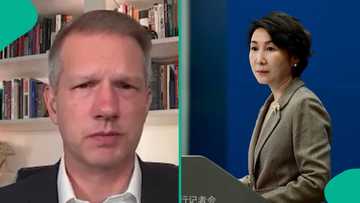
Read also
US congressman breaks silence as China backs Nigeria and warns against interference from US
“Drawing on our own journey from racial and ethnic division to democracy, South Africa is uniquely positioned to champion within the G20 a future of genuine solidarity, where shared prosperity bridges deep inequalities.
And collective action for sustainability that centres the development to address the impact of colonialism of the African continent.”
Land reform and trade tariffs, strained relationship
Earlier this year, Trump offered refugee status to Afrikaners after President Cyril Ramaphosa signed a law allowing land expropriation without compensation in rare cases. Most private farmland in South Africa is owned by white citizens, who make up just over 7% of the population.
Ramaphosa attempted to ease tensions by visiting the White House in May with a diverse delegation, including white coalition members and well-known golfers. However, Trump used the meeting to repeat claims that white farmers were being “persecuted”, citing evidence that has been widely discredited.
Despite these efforts, relations worsened in August when the US imposed 30% tariffs on South African exports, the highest rate in sub-Saharan Africa.
South Africa now looks ahead to the G20 summit, determined to focus on global cooperation and inclusive development, while navigating diplomatic challenges with resilience.
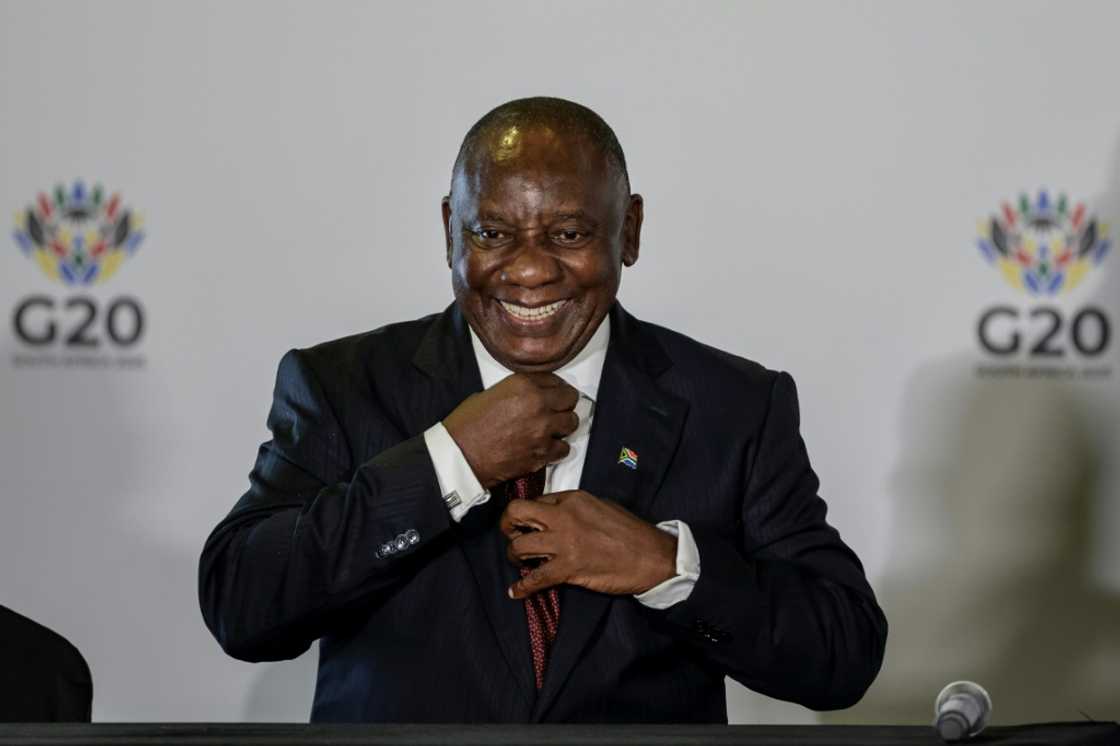
Source: AFP
S.Africa says talks with Trump aim to salvage trade
Legit.ng earlier reported that Securing South Africa's trade ties with the United States will be a key aim of President Cyril Ramaphosa, who Monday began a Washington visit that will feature a meeting with Donald Trump, Ramaphosa's office said.
Ramaphosa arrived late Monday accompanied by four cabinet ministers on the high-stakes visit. He is expected to meet Trump at the White House on Wednesday.
"The purpose of the visit is to reset and revitalise bilateral relations between South Africa and the United States (US)," read a statement issued by the Pretoria presidency.
Source: Legit.ng


